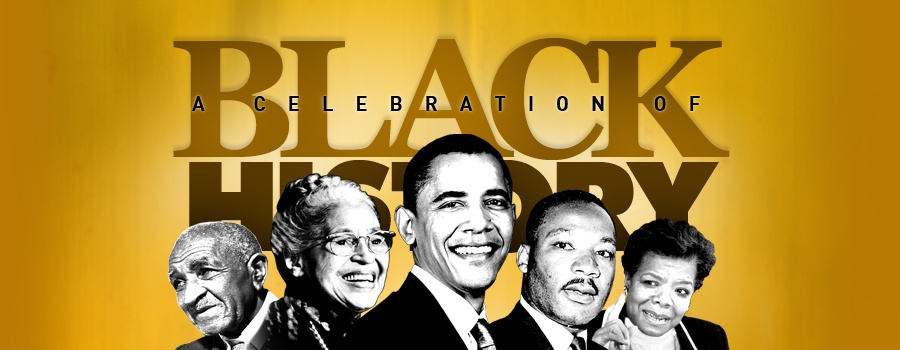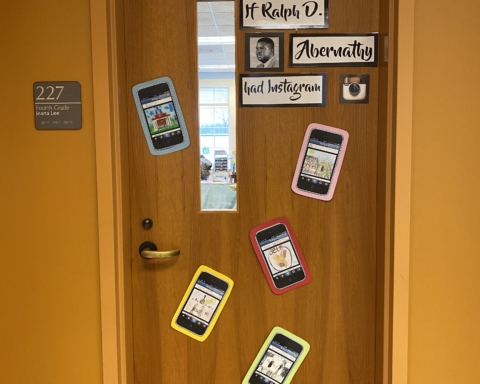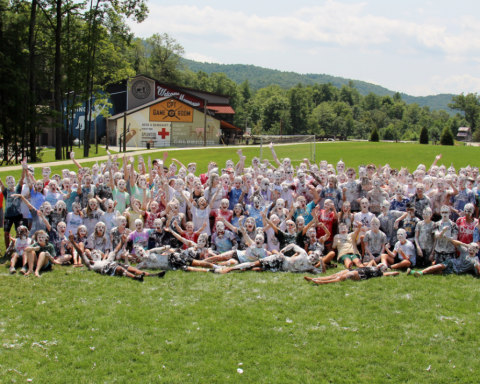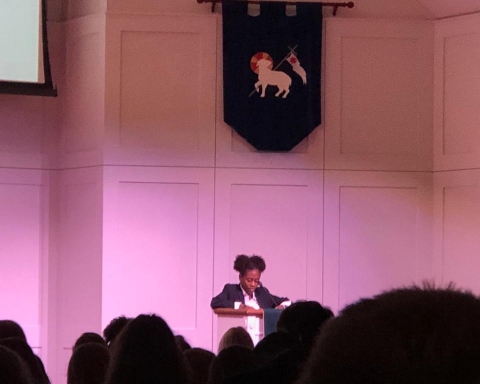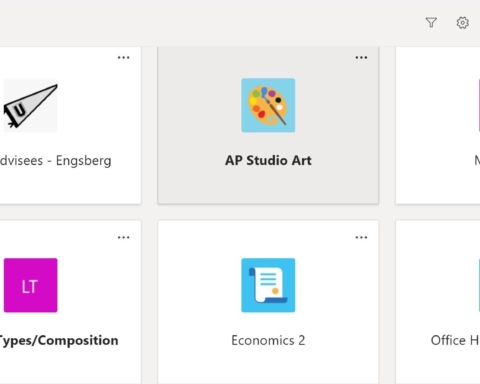The month of February is celebrated annually at Wesleyan and across the U.S. as Black History Month. This month is a celebration of the accomplishments of black Americans and highlights the importance of African Americans in the history of the United States.
Wesleyan celebrates Black History Month in a variety of ways. This month, Senior Pastor Steven N. Dial Senior of Rainbow Park Baptist Church was invited to speak in chapel in honor of Black History Month. Along with him came the Rainbow Park Baptist Church Choir. The choir led the middle school and the high school in music, then Dial Sr. spoke.
He spoke about God’s everlasting love for us and the relationship that we may have with him now and the work God is doing in our lives. He used an example of a basketball to show students that God’s love can be shared with others, and that it should be shared with everyone, regardless of their skin color.
Sophomore Maya Timberlake said, “My favorite thing about chapel was the worship choir.”
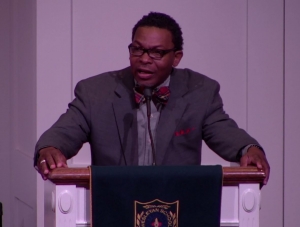
According to History.com, Black History Month was originally founded as Negro History Week in 1926 by the Association for the Study of African American Life and History (ASALH). It was originally during the month of February to coincide with the birthdays of Abraham Lincoln and Frederick Douglass.
After 50 years of celebrating Negro History Week, President Gerald Ford officially recognized the month of February as Black History Month in 1976. President Ford said the public should “seize the opportunity to honor the too-often neglected accomplishments of black Americans in every area of endeavor throughout our history.”
There are many other historical African Americans that have made major impacts on the history of the country. Timberlake also said, “Ruby Bridges has had the greatest impact in American History because she paved the path for the opportunities in education that I have today.” Ruby Bridges was the first African American child to attend an all-white public elementary school in the American South (Biography.com). Bridges broke barriers for future African American children and made it possible for other children to attend white public schools.
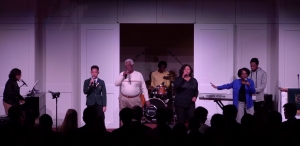
There are many students at Wesleyan who appreciate Black History Month and the recognition that is given to historical African Americans.
When asked about who she thinks is the most important African American in the history of the United States, senior Capri Frazier said, “I think that Martin Luther King has had the most impact in American History. He is the one that sparked the Civil Rights Movement, which gave African Americans the rights and equality that we deserved. He had the strength and fortitude to keep fighting for our freedom despite the fact that he was getting harassed, ridiculed and persecuted. This kind of strength is hard to come by and is extremely admirable.”
Middle School teacher and Coach Demetrius Frazier said, “Black History Month is very necessary for other people to recognize what a lot of African Americans went through to get where we are today. It is something we should not take for granted and it means a lot to some of us. It does not mean the same thing to everybody, but for me to be able do what I do on a daily basis and live the life that I live; a lot of people would put forth a lot of sweat and pain to get to that point.”
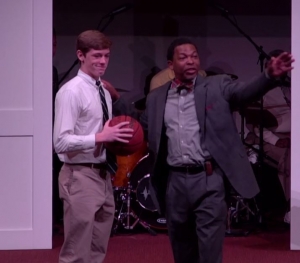
Coach Frazier also believes that the African American who has had the biggest impact on American History is President Obama. “Little black boys and little black girls can dream that they can actually be the most powerful man in the world and it is not based off their race,” said Frazier. President Obama made it possible for any person of color to dream about one day becoming President of the United States.
February is a time “where we can really take the time and reflect on the sacrifices that people made before us and be grateful for them and their actions,” said Capri Frazier.

